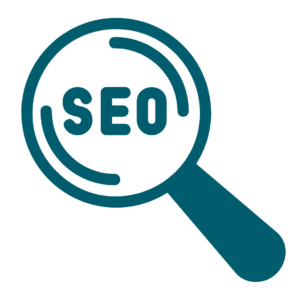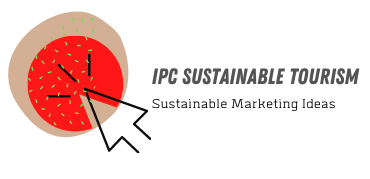Starting An SEO Business is an important marketing strategy for websites because it provides sustainable business results over the long term. It uses best practices and market research to help search engines like Google understand what a webpage is about.
SEO involves two audiences: people and search engines. The best way to optimize content for both is to include keywords naturally in the article.

In search engine optimization, keywords are words or phrases that define what a page’s content is about. They are used to inform website content creation to increase relevant organic search traffic. Depending on the industry, some keywords are more valuable than others. Choosing the right ones can make or break a marketing campaign. Using the wrong keywords can result in low search volumes, and worse yet, they could drive the wrong kind of traffic to your website.
When deciding on SEO keywords, it’s important to look at them from the perspective of your target audience. This will help you determine what they are searching for and how to target their needs. You can also use various online tools to find the most relevant keywords for your business.
Some digital marketers like to categorize keywords according to a marketing funnel or customer journey, which can be helpful for planning and execution. These categories include informational keywords, navigational keywords, and transactional keywords. For example, informational keywords reflect a buyer’s awareness stage and indicate interest in learning about a particular topic. Navigational keywords are specific searches for a brand or company and can suggest that a user is in the consideration phase of their journey. Transactional keywords are used when a searcher is ready to buy and can be used for many types of products.
It’s also important to consider search volume and competition during keyword research. A high search volume can be difficult to rank for, while lower-volume terms have less competition. The ideal balance is to have a mix of both.
Once you’ve chosen your keywords, you can integrate them into your website. You’ll want to ensure that your keyword is included in the title of your webpage and that it appears at least twice in the body text. You can also add it to a couple of headings and subheadings, depending on the length of your page. However, be careful not to overdo it – readability should always come first.
A web page’s on-page optimization is vital to an SEO strategy. This includes all factors directly related to a page’s ranking on search engine result pages (SERPs). While on-page optimization is more difficult than off-page optimization, it’s essential for getting the most out of your website.
On-page optimization requires a comprehensive workflow that includes analysis, optimization, and monitoring. It’s important to recognize that the best on-page optimization efforts are based on a solid understanding of the target page and its competition. Otherwise, you risk damaging your keyword rankings and wasting time.
The on-page optimization process begins with a thorough web page audit. The audit aims to identify issues that negatively impact the page’s SEO performance. Once the problems are identified, you can start to fix them. However, it’s crucial to prioritize your tasks and focus on fixing critical errors first. These errors have the greatest impact on the page’s quality and rankings.
Using a tool with a step-by-step checklist and actionable tips would be best to maximize your on-page SEO. These tools also help you compare the targeted page with direct competitors and similar pages. The tool will also help you identify opportunities and make recommendations for improving the page’s content, structure, and technical parameters.
On-page optimization is the most effective way to improve a website’s ranking in SERPs. It involves optimizing the page’s content, keywords, and technical parameters. This will improve the page’s quality and increase its organic traffic. It will also ensure that the site is resilient to algorithm changes.
In addition to optimizing the content on a webpage, you can also optimize its metadata and images. These factors are often overlooked, but they can significantly impact SEO. For example, adding alt text to images can help Google understand the content of a page and increase its relevancy. It can also improve the user experience by making it easier to navigate and read. This can be especially beneficial for visually impaired users. Moreover, it’s important to ensure that the images on your page are relevant and appropriate for the content.
Off-page optimization is a crucial part of SEO. Off-page factors like links, social signals, brand mentions, and PR activities contribute to a page’s authority and trustworthiness. These off-page factors are not directly related to the page’s content but to the website’s overall reputation. The better a website’s off-page reputation, the more likely it is to rank higher in search engine results pages (SERPs).
In off-page optimization, there are two links: natural and built. A natural link is a link that comes to your website without your team’s intervention. This link is usually placed in another piece of content and reflects the author’s value on your content. In addition, this link passes authority to your site and boosts your authority score.
Unlike a natural link, a built link is a link that comes from your team’s outreach. This can be done through various methods, including guest blogging, press releases, or pitching to influencers. These links are more common but take less authority than a natural link. In addition, a built link may be from low-quality sources and can be considered spam by search engines.
One of the most important off-page factors in off-page optimization is brand signals, which Google uses to determine a website’s authority and trustworthiness. These include branded searches, unlinked mentions, and social media activity. In addition to these signals, a business should strive to improve its E-A-T by showcasing its expertise and establishing trust.
Another off-page optimization technique is technical SEO, which includes analyzing and fixing website issues that may impact the user experience and search engine rankings. This includes slow website speed, broken links, and canonicalization errors.
The main goal of off-page optimization is to earn links from authoritative websites. These links are a key component of any SEO strategy, and they can help a website achieve high rankings in SERPs. However, it’s essential to keep in mind that off-page optimization is a process that takes time and effort. If you want to see a quick return on your investment, try using a tool such as RankWatch to analyze and optimize your off-page SEO.
Link building is one of the most important aspects of SEO, and it can increase your website’s authority and credibility. However, there are other factors to consider. You should also view your content and your site’s architecture quality. This is especially true for commercial pages, which are often difficult to rank well because people dislike linking to them.
A backlink is a hyperlink from another website to your website. Search engines use these links to assess a page’s credibility and determine its ranking. In addition, they can also drive traffic to your site. Link building is a key SEO component, but it must be done correctly to maximize its benefits. Understanding the difference between white hat and black hat tactics is also important.
White hat tactics provide value to end users and abide by Google’s terms of service. These methods are generally safe and can produce long-term results. However, they can be very time-consuming and labor-intensive. On the other hand, black hat techniques are generally risky and can lead to penalties from Google.
Link-building is vital to SEO but must be challenging to do correctly. It is a process that requires constant monitoring and optimization, which can take time for small businesses to keep up with. Furthermore, there are other guaranteed ways to improve your search engine rankings. Some techniques, such as spamming or submitting to directories, have been devalued by Google.
In 2023, building authority through quality content and creating trust in your brand is important. If you can do this, ranking your target market’s queries will be easier. In addition, great content and assets can help you reach new audiences in new geographic locations.
Link building has been a mainstay of SEO for years, and many companies still believe it is the most important aspect of a successful digital marketing strategy. However, it’s crucial to remember that Google constantly evaluates how quality content fits its search engine algorithm. Moreover, the number of incoming links from unique domains (URD) directly correlates with search engine ranking.
